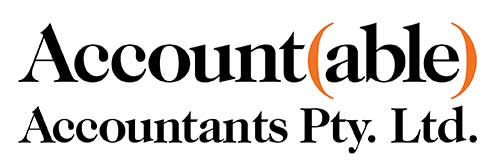The differences between a BAS and IAS

Business Activity Statements (BAS): An Overview
The mere mention of the term ‘Business Activity Statement’ (BAS) is enough to make many business owners break out in a sweat. Even more stressful than that is having to come up with the cash to pay it if you haven’t been putting the money aside.
All businesses registered for GST need to lodge a BAS. You need to fully understand what they are, when they need to be lodged and when they need to be paid.
Activity Statements are issued by the ATO so that businesses can report and pay a number of tax liabilities on the one form at the one time.
There are two types of statements – an instalment activity statement (IAS) and a business activity statement (BAS)
What is an Instalment Activity Statement (IAS)?
The IAS is the simpler of the two forms and is only issued quarterly.
On the IAS, the ATO tells you what your GST instalment amount is and where applicable what your PAYG instalment amount is.
If the ATO considers you to be eligible for the IAS system, you will have the option to take advantage of this easier method on your September BAS – the first BAS of the financial year. If you elect this option, for each of the next three quarters you will simply be sent an amount that needs to be paid to the ATO.
If you feel the instalments advised are too much or not enough to cover your liabilities, you may be able to vary the amounts. Alternatively, you may be in a position to wait until the end of the year and pay in one lump. In these situations, any adjustments for GST will be calculated when your annual GST return is lodged and any adjustments on PAYG will result in an amount payable or refundable when your income tax return is lodged.
It’s highly recommended you seek advice from a certified tax professional before changing the amount or timing of any payments to the ATO.
If you’re paying the amount shown on the form, you do not need to physically lodge anything with the ATO. However, if you wish to vary the amount shown, you will need to lodge the form by the due date.
The instalment amounts will be payable as follows:
| Quarter | Due |
| July – September | 28 October |
| October – December | 28 February |
| January – March | 28 April |
| April – June | 28 July |
What is a Business Activity Statement (BAS)?
The Business Activity Statement is a form that Australian businesses use to report their Goods and Services Tax (GST), pay their GST liability, and report other tax obligations. It is a summary of all the business taxes you have paid or will pay to the Government during a specific period.
It’s typically lodged either monthly or quarterly, depending on the size and turnover of your business.
What to include in a BAS
A BAS involves more detail. They can include some or all of the following:
- Goods and services tax (GST)
- Pay as you go (PAYG income tax instalment
- Pay as you go (PAYG) tax withheld (from employee wages)
- Fringe benefits tax (FBT) instalment
- Luxury car tax (LCT)
- Wine equalisation tax (WET)
- Fuel tax credits
How to stay on top of your BAS & IAS statements:
- Stay Organised: Maintain accurate records of your business’s financial transactions, including sales invoices, purchase receipts, and tax-related documents. This ensures that you have all the necessary information when it comes time to complete your BAS and IAS.
- Use Online Accounting Software: Streamline the process by using an online software program such as XERO to prepare your BAS and IAS. These tools can automate calculations, track your GST obligations, and generate accurate reports, saving you time and reducing the risk of errors.
- Seek Professional Guidance: You may find the complexities of BAS and IAS overwhelming. You really should speak to your Tax Agent as they can provide personalised guidance, ensure compliance, and help you maximise your tax benefits.
Make sure you have enough money to pay your BAS when it is due:
By opening a separate business bank account, you can transfer weekly the GST you have received as well as the PAYG deducted from staff wages. When the time comes to pay the BAS, you will have these funds available. If for some reason you do not have enough money to pay the BAS on time you need to call the ATO prior to the due date and let them know and you may be able to arrange a payment plan.
